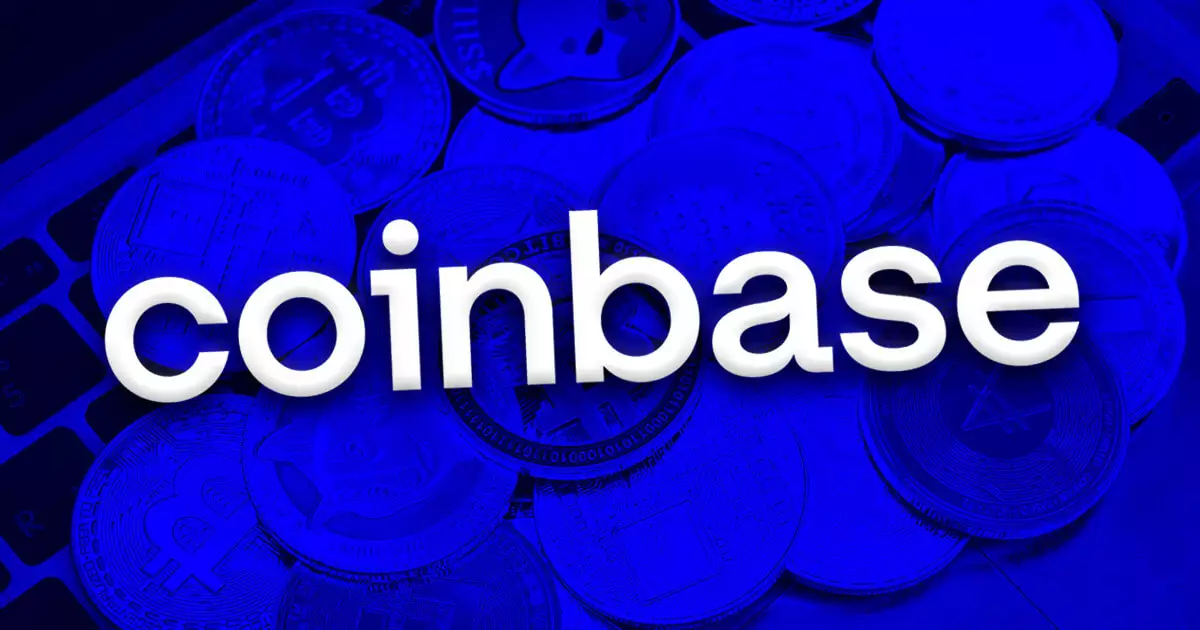The cryptocurrency landscape has been marked by both innovation and contention, with various contenders vying for dominance. One of the latest examples of this turmoil is the ongoing legal dispute between Coinbase and BiT Global regarding the delisting of Wrapped Bitcoin (WBTC). As Coinbase stands firm in its decision, analyzing the merits of each side highlights the complex interplay between regulatory compliance, consumer protection, and market competition within the rapidly evolving digital currency sector.
Coinbase’s decision to delist WBTC stems from substantial concerns about the token’s legitimacy and the reputational risks linked with its association with Justin Sun, the controversial founder of TRON. According to Coinbase’s legal team, led by Chief Legal Officer Paul Grewal, the exchange conducted an exhaustive internal review that brought to light troubling factors tied to Sun’s history of alleged fraudulent activities and market manipulation. The concerns were particularly compounded by BiT’s perceived lack of transparency regarding the ownership of WBTC reserves, which Coinbase argued posed an “unacceptable risk” to its platform integrity and user confidence.
The emphasis on due diligence reflects a broader trend within the crypto industry where exchanges are increasingly wary of the assets they host. In a market rife with regulatory uncertainty and potential fraud, scrutinizing the credibility of tokens is not merely prudent; it is necessary for maintaining trust among investors and the public at large. Coinbase’s stance can be seen as an effort to prioritize the safety of its users, operating within legal frameworks while keeping an eye on its long-term reputation.
BiT Global’s Legal Strategy and Repercussions
BiT Global’s response to Coinbase’s decision is equally significant. The company’s legal strategy revolves around framing the delisting as a competitive maneuver that unfairly targets WBTC to promote Coinbase’s own asset, cbBTC. The plaintiff argues that the decision not only threatens BiT’s market position but also endangers the consumer trust associated with WBTC. From their perspective, the delisting serves as a detrimental signal to the broader crypto community, amplifying concerns about the asset’s viability.
In their court filings, BiT Global asserts that Coinbase’s actions violate California’s Unfair Competition Law, claiming that the implications of this delisting could lead to reputational damage and consumer mistrust. This argument hinges on the premise that competitive practices should not harm consumer options or create unfair advantages in the marketplace. Yet, as Coinbase has pointed out, the vast majority of WBTC transactions occur elsewhere, indicating that the exchange’s withdrawal might not have the dire effects BiT anticipates.
This case also casts a light on the broader implications of Justin Sun’s influence and the scrutiny surrounding his operations. With ongoing legal issues from the Securities and Exchange Commission (SEC) and potential criminal investigations, the question remains: how will this controversy impact the legitimacy of associated ventures? The crypto space has long been characterized by volatility and uncertainty, and developments like these fuel speculation about regulatory oversight.
Moreover, Coinbase’s dismissal of BiT’s claims about consumer access paints a picture of an increasingly diffused marketplace. WBTC holders retain numerous options for trading and storing their assets, suggesting that the fallout from the delisting may be more nuanced than simply creating barriers for users. Coinbase’s emphasis on operational transparency and security may resonate more with its consumers than the discourse surrounding competitive advantage.
As the legal proceedings continue, with a hearing on BiT’s temporary restraining order scheduled for December 18, the outcome will likely shape not only the futures of both companies involved but may also signal shifts in market dynamics.
If BiT is successful in its request, it could set a precedent for how cryptocurrency exchanges handle potential conflicts of interest and the comprehensive vetting of assets. Alternatively, if Coinbase prevails, it may embolden exchanges to take more decisive actions against seemingly problematic tokens without fear of legal retribution. As this situation unfolds, stakeholders across the entire digital asset ecosystem will be watching closely, keen to understand how these legal battles influence operational strategies and market perceptions moving forward.
The tussle over Wrapped Bitcoin highlights the tension between compliance, consumer trust, and competition within a vibrant yet volatile market. The outcome may redefine how exchanges interact with dubious tokens and the responsibilities they hold towards their clients amid burgeoning regulatory environments.









